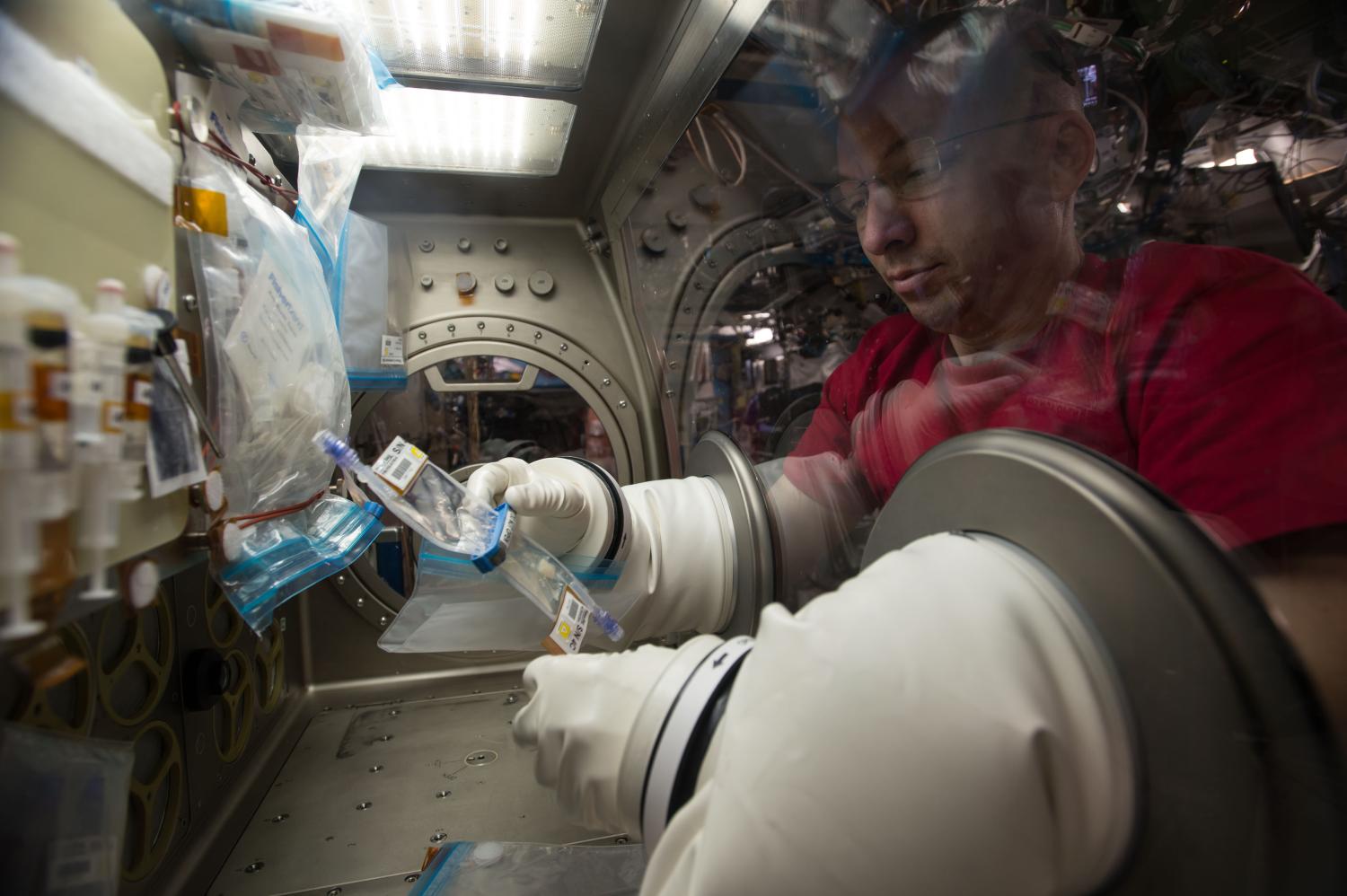
TPK
Safely Returning Rodent Science Back to Earth
The Tissue Preservation Kit (TPK) is a family of hardware enabling the return of preserved rodent tissue samples produced as part of NASA's Rodent Research missions. Due to physiological adaptations that occur in rodents (and humans) during spaceflight, it is critical for some Rodent Research missions to be terminated while the rodents are still exposed to the microgravity environment. At termination, the rodents are euthanized and dissected to harvest tissue samples of interest (such as muscle, bone, and cardiac tissue). These tissues are preserved by TPK for the journey back to Earth enabling ground-based researchers to analyze the microgravity-adapted tissue for both morphological and biochemical differences.
Although it is used primarily for rodent missions, TPK is also adaptable for non-rodent tissue preservation. For example, TPK-02 was used for fruit fly preservation.
A typical TPK hardware kit includes the following components and is customized for each experiment depending on science requirements:
- Tissue containment bags (manufactured to size)
- Fixative syringes
- Secondary containment (e.g. PHABs)
The first TPK-supported experiment flew in 2014 on SpX-4. Since then, a total of eight TPK-supported experiments have flown.

NASA astronaut Randy Bresnik working with TPK hardware within MSG during the Lung Tissue experiment

